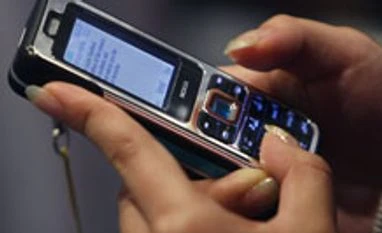On the face of it, a five percentage point increase in excise duty (from one per cent to six per cent) on mobile handsets priced more than Rs 2,000 looks reasonable. But according to the Indian Cellular Association, which represents all leading handset manufacturers, 200 million new mobile phones are sold in a year. Of these, 70 per cent (140 million) are in the price category Chidambaram is targeting. With this increase in duty, he could rustle up between Rs 1,800 crore and Rs 2,700 crore in 2013-14 for the exchequer, depending on the average cost of mobile phones in the country.
There is a difference of opinion on the average price of a mobile phone sold in the country. ICA says it is around Rs 4,000. Ernst & Young analysts say it could be around Rs 6,000.
Mobile manufacturers explained there was an abatement of 35 per cent on a mobile phone’s maximum retail price. So for a phone costing Rs 2,000, duty would be calculated on Rs 1,300.
Chidambaram had said in the Budget that about 70 per cent of imported mobile phones and about 60 per cent of domestically made ones were priced at Rs 2,000 or below. “I do not propose to change that in the case of low-priced mobile phones. However, on mobile phones priced at more than Rs 2,000, I propose to raise the duty to six per cent,” he said.
Pankaj Mohindroo, founder and national president, ICA, said: “Imposition of the excise duty in the Budget will mean there will not be many start-ups in expansion, due to the grey-market competition.”
Vishal Malhotra, tax partner – telecom practice, Ernst & Young, said: “The impact of the duty hike on retail prices of mobile handsets would be three to four per cent. However, companies may consider consuming the burden at the lower end, as the competition is very high; the burden is more likely to be passed on to consumers at the higher end.”
For example, an iPhone 5 (16 GB), retailed at around Rs 45,500, could now cost between Rs 46,865 and Rs 47,320 if the company decides to pass on the burden of the excise duty to the consumers. “The mobile phone segment is very competitive. We have no option but to increase prices,” said S N Rai, co-founder and director of Lava Mobiles.
According to P Balaji, managing director, Nokia India, the excise duty was likely to increase sale of grey, unbranded and sub-standard handsets which was not good for the consumer, industry and the exchequer. Korean handset maker Samsung, which is the leader in the smartphone segment in India, said the decision should lead to an increase in prices, said Asim Warsi, vice-president, Samsung Mobile.
)